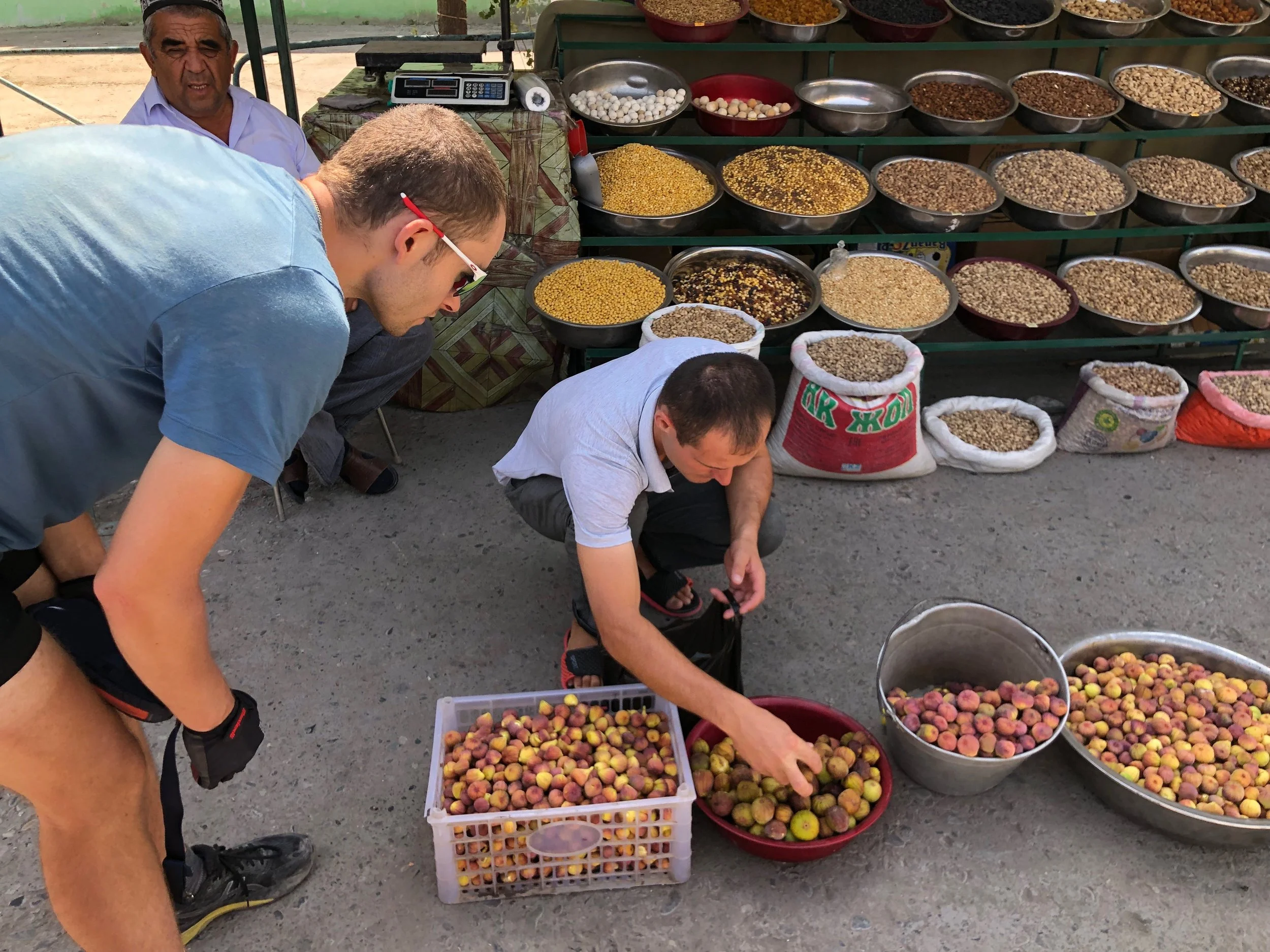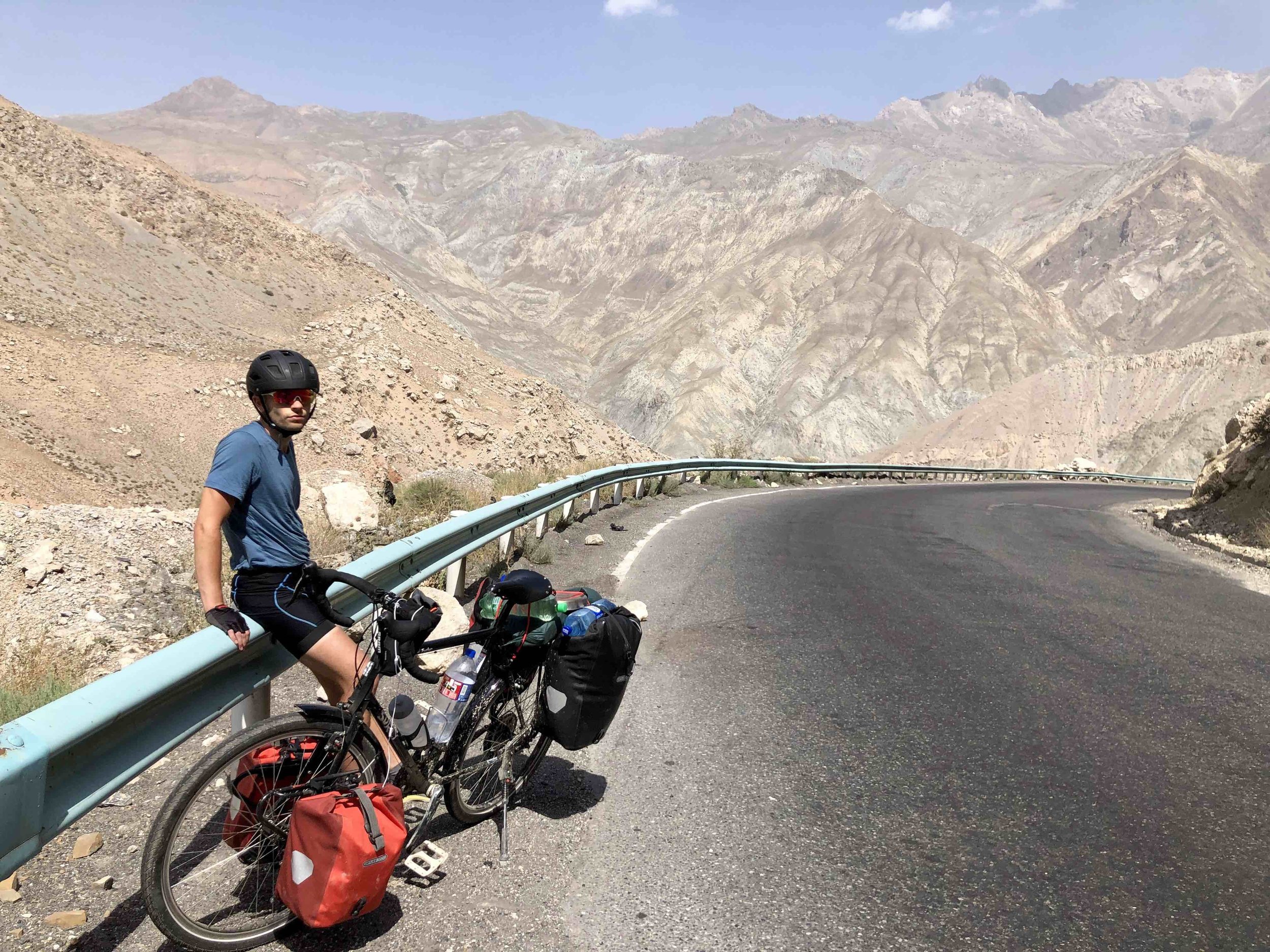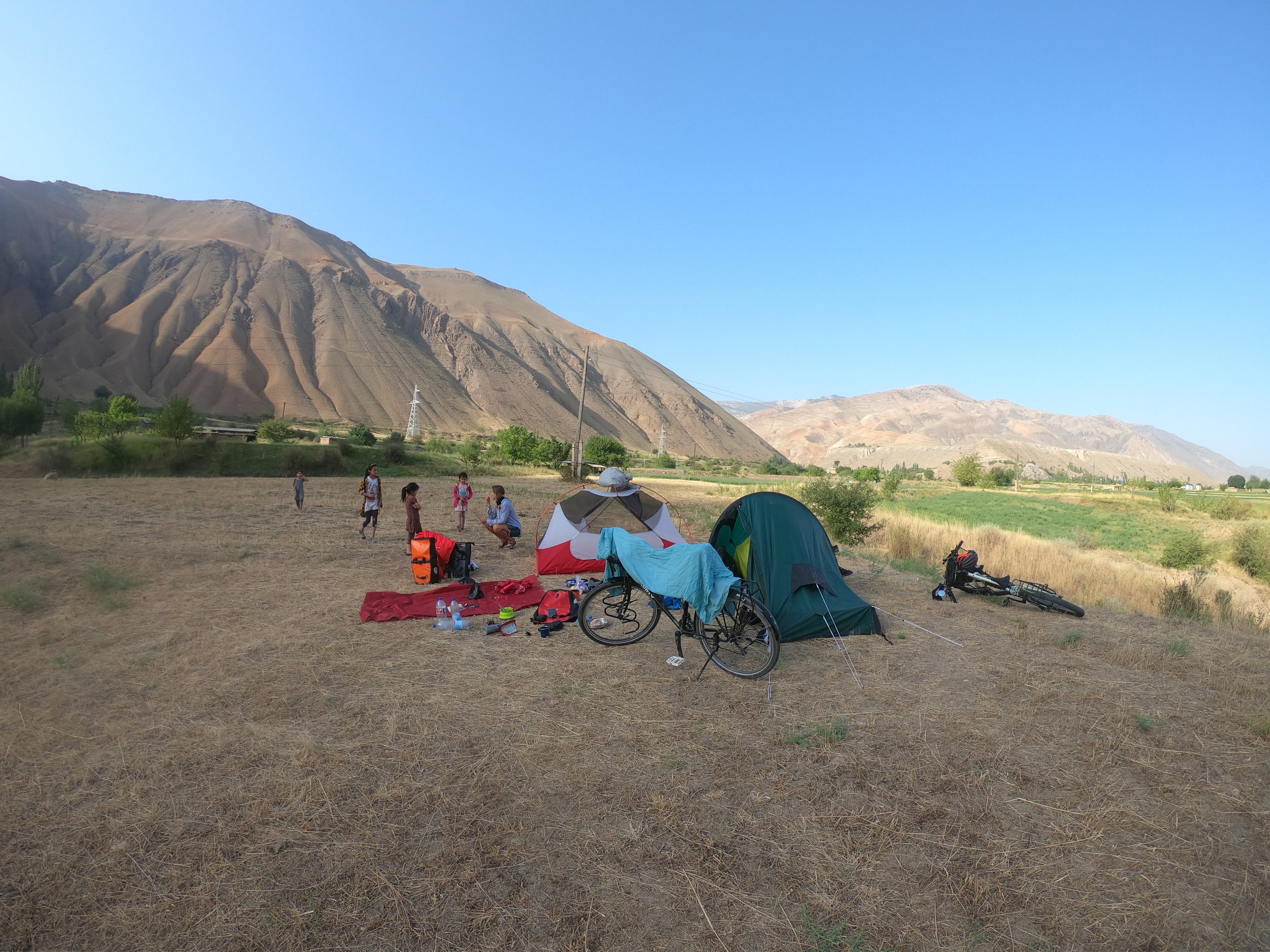It was during the fourth roadside squat, this time in a fetid ditch next to a donkey paddock, as the sun scorched the back of my neck that I thought “this was not what I had in mind.”
Of course I anticipated gastric illness, a staple of travel in developing countries, but I failed to imagine the horror of sudden, urgent bowel movements while cycling through an arid valley in 43 degrees.
The saving grace was a truckie who, at the moment I emerged from the ditch, hurled us an ice cold bottle of cola from his window without even slowing down.
We spent three days with writhing guts in Dushanbe, the gardened capital of Tajikistan, which I will now associate with the certain smell a toilet acquires when half the guesthouse is sick.
When the illness abated we cycled north an easy 40km to a secluded campsite off the road. It was such a relief to be back under the stars.
We stopped the following day at the sight of buckets of fresh figs, where we learnt the trick whereby the vendor takes your money, and instead of giving you change gives you twice the amount you wanted. And thus a kilogram of figs are squeezed into the oven-like interior of my panniers.
The crafty fig vendor
A man also insisted on buying us four bags of assorted chickpeas, seeds and nuts. We tried to protest but he told us “you’ll find space.” As we discreetly and guiltily poured them out about 4km down the road, we agreed we should’ve got him to lift our bikes so he could understand there really is no “space”.
The next day – that of the four roadside squats - we managed 84km from our campsite to Vose thanks to the powerful lure of a basic hotel with a shower.
Between our campsite and Vose we stopped for water in a town called Danghara where these kind boys gifted me a watermelon. When we finally hacked into it 70km later, it was so worth lugging the extra 3kg.
The hotel concierge had recently graduated from university and wanted to practise his English, so like a polite guest I took the opportunity to talk about religion and politics.
I asked his thoughts on the president, Emomali Rahmon, a man whose intolerance of dissent has helped him stay in power since 1992. I got nothing but a sheepish smile and shake of the head.
In response to my question of whether it was offensive for a foreign woman to cycle in shorts, he unwrapped a sweet and presented it to me alongside one still wrapped, asking, “which one would you choose?”
He said a Muslim man is permitted to look at a woman once, because Allah can understand that might’ve been an accident, but the second look is sin.
Later I asked Jack if I should still wear the shorts and he replied yeah, as long as we only cycle past once.
Lake Nurek, blissfully unaware of the roadside squatting horrors to come


















